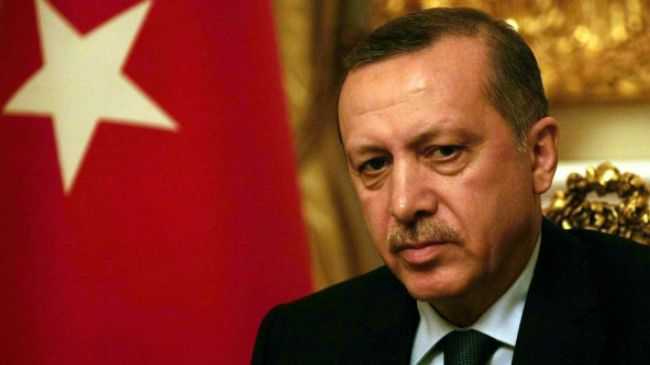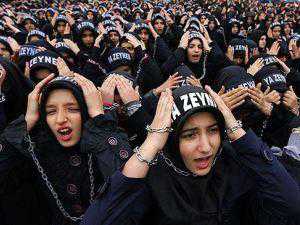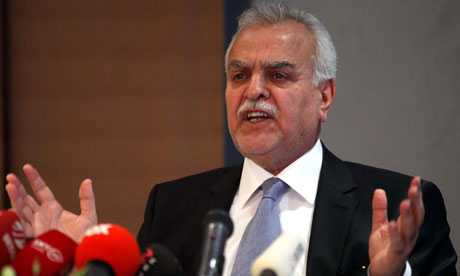ERBIL, Iraq, Nov. 21 (UPI) — Turkey, its eyes on becoming the pivotal energy hub between East and West, is set to increase its presence in Iraq’s semiautonomous Kurdish enclave by taking a majority stake with a British partner in a block containing an estimated 10.5 trillion cubic feet of natural gas.
That’s likely to have considerable political ramifications that are certain to strain already awkward relations between Ankara and Baghdad, and intensify the deterioration of relations between Iraq’s central government and the independence-minded Kurds.
The Middle East Economic Digest reports that Genel Energy, a British-Turkish joint venture, will acquire the majority stake in Kurdistan’s Miran block from the London-listed Heritage Oil which is selling off its 49 percent holding in a production-sharing deal with the Kurdistan Regional Government.
Once the sale is approved by the KRG and Heritage’s shareholders, Genel will have complete ownership of the block and be its only operator.
The joint venture also has nine exploration blocks across Kurdistan, one of 40-plus companies which have signed production-sharing deals with the KRG in the Kurdish capital, Erbil, since 2007.
The Turkish involvement will be particularly galling to Baghdad because Ankara has in recent months made a high-profile move into the KRG’s energy sector in defiance of Baghdad’s insistence such deals are illegal as constitutionally only Baghdad can sanction such agreements.
Ankara recently offered land-locked Kurdistan, which borders southern Turkey, to build oil and gas pipelines from the enclave, which spans three provinces in northern Iraq, to Turkey’s Mediterranean export terminals.
At present, the Kurds have to pump the oil they produce through the state pipeline network controlled by Baghdad.
That export route would free the Kurds from reliance on the Baghdad government, and undoubtedly heighten their aspirations to establish an independent state in northern Iraq.
They’ve already risked Baghdad’s wrath by signing exploration deals with major international companies such as Exxon Mobil and Chevron of the United States and Total of France.
All these companies had secured production-sharing contracts from Baghdad to develop major fields and their defection to the Kurds and the more lucrative contracts they are offering was a major political humiliation for the trouble-plagued government of Iraqi Prime Minister Nouri al-Maliki.
Baghdad needs the companies to make massive investments in southern fields to boost production from the current 3 million barrels per day to 10 million-12 million bpd to challenge Saudi Arabia as the world’s leading producer.
Baghdad’s stiff contract conditions, low financial returns, governmental ineptitude and delays in building the required infrastructure have alienated Big Oil.
But Iraq’s entire reconstruction and economic plans depend on the large-scale — many say overly ambitious — expansion of oil production.
Kurdistan sits on 45 billion barrels of oil. That’s a fraction of Iraq’s known reserves but it’s enough to establish a firm economic base for an independent state.
The KRG’s current crude output is 240,000 barrels per day but it is aiming for 1 million bpd in a couple of years. Some 90 percent of Kurdish oil sales flow from the Tawke and Taq Taq fields where Genel has major interests.
So there’s a lot riding on all this for both Baghdad and the KRG and the Kurds seem to be making all the running.
Maliki cannot afford to let them get away with that and thumb their noses at his government’s authority. So he’ll have to take some unequivocal action on this soon, if only to stamp on the Kurds’ long-held dream of independence and to convince other regions, including the south, that have been talking of gaining more autonomy to back off.
He may have already started.
Earlier this month, Baghdad, in a reprisal against Ankara, booted out Turkey’s state-owned TPAO oil company from a Kuwaiti-led consortium which was about to sign a 20-year, production-sharing agreement with the Oil Ministry for Block 9 in southern Iraq. TPAO had a 30 percent interest in that contract.
Some two-thirds of Iraq’s proven oil reserves of 143.1 billion barrels lie in the south.
“TPAO also has stakes in the developments of another four fields in Iraq: the Badra and Missan oil fields, and the Mansouriya and Siba gas fields,” MEED reported.
“There has been no indication whether TPAO will be removed from these.”
via Turkey increases energy presence in Kurdish regions of Iraq – UPI.com.




